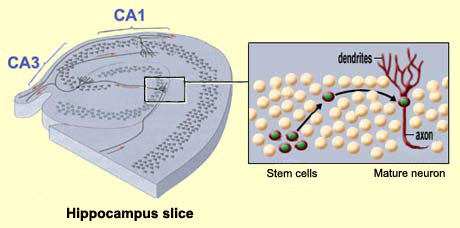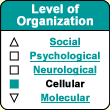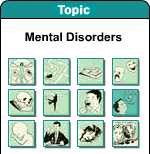|
|




Neurogenesis
and Depression
Some physicians are willing to assert that antidepressants such as Prozac,
Zoloft, and Paxil are prescribed too often and too widely. These doctors point out that such medications can cause some far more serious side effects than those acknowledged by the pharmaceutical companies that manufacture them. These side effects include sexual dysfunction, withdrawal symptoms, visual hallucinations, nausea, dizziness, and anxiety.
Even more importantly, these doctors argue, the limited effectiveness of these medications suggests that depression is not just one biological problem among many others, but rather a complex biopsychosocial problem.
Moreover, this problem can often be alleviated without drugs, either through psychotherapy or simply through aerobic exercise, such as jogging or dancing.
|
|
|
| ANTIDEPRESSANTS AND THE GROWTH OF NEW NEURONS |
|
The recent observation that new neurons can form in the hippocampus
of the adult human brain has shattered a dogma that had been accepted
for nearly 100 years (follow the History module link to the left).
Moreover, the discovery that this process of neurogenesis seems
to occur extensively in the hippocampus, and especially in the
part known as the dentate gyrus, is very exciting for researchers
who are trying to understand the beneficial long-term effects of
antidepressants that raise serotonin levels, such as Prozac.
Indeed, research on Prozac soon showed that 70% more new neurons
form in the hippocampi of rats treated with this drug than in those
of normal rats. In other words, serotonin seems to promote neurogenesis
in the hippocampus. It was from this observation that a link between
depression and neurogenesis was hypothesized.
The idea of such a link did not surprise
psychologists, who had long known that intense or prolonged stress
can trigger depression. Stress bathes the brain in certain hormones
such as glucocorticoids that
are known to reduce neurogenesis and even destroy neurons, specifically
in the dentate gyrus of the hippocampus.

There thus seems to be at least a correlation
between the extent of neurogenesis in a person's hippocampus and
the degree to which he or she is or is not depressed. Though scientists
cannot prove that depression is caused by a stress-induced deficiency
in neurogenesis, some researchers do believe that by stimulating
the hippocampus to start growing more neurons again, antidepressants
enable patients to construct positive new mental images that restore
their confidence in the future.
There thus appear to be more
and more facts supporting the hypothesis that a decrease in neurogenesis
in the hippocampus is associated with the triggering of depression and that an
increase in the rate of new cell formation in the hippocampus is a causal factor
in curing it.
|
|





